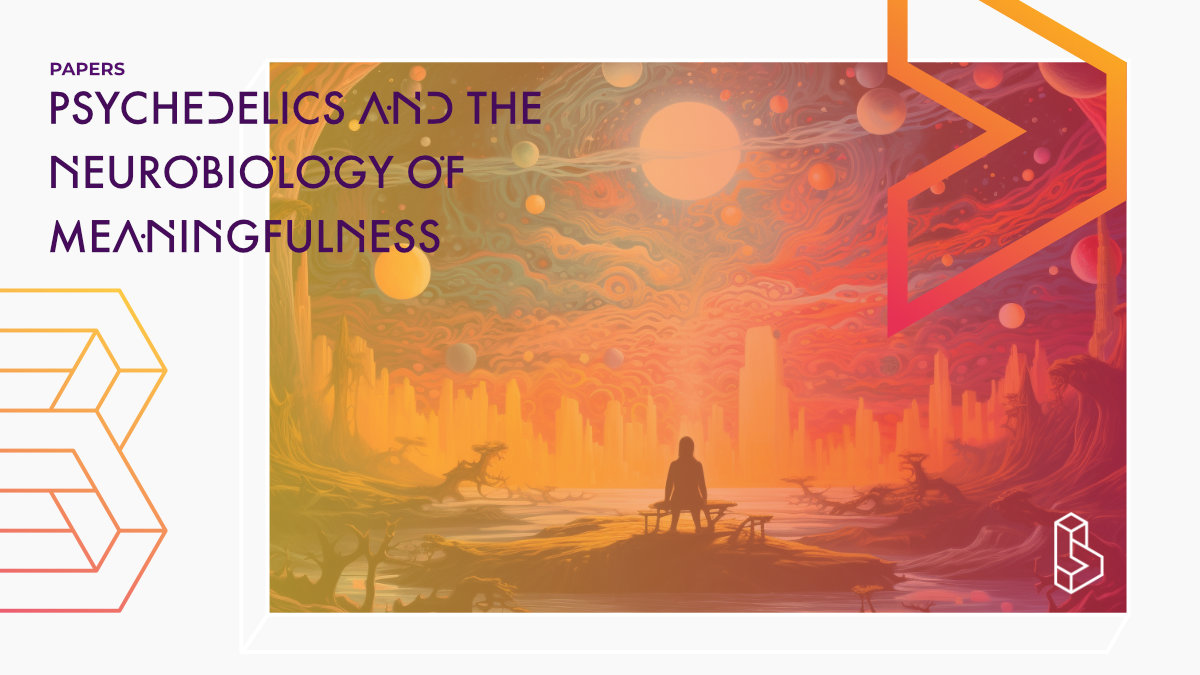This commentary (2023) explores the neurobiological mechanisms underlying the experience of meaningfulness induced by psychedelics, focusing on 5-HT2A receptor activation. It proposes multiple hypotheses: 1) 5-HT2A activation increases the salience of environmental stimuli, 2) psychedelics may reactivate salient autobiographical memories, and 3) psychedelics may create novel neural representations that generate prediction errors. The study also discusses the therapeutic implications, suggesting that the induction of meaningfulness could be a marker for the effective engagement of brain targets like the 5-HT2A receptor.
Abstract of Psychedelics and the neurobiology of meaningfulness
made by us as the commentary has no abstract
This commentary delves into the complex neurobiological mechanisms that underpin the experience of meaningfulness elicited by psychedelic substances, with a particular focus on 5-HT2A receptor activation. Utilizing a multi-faceted approach, the study implicates various brain regions—including the supplementary motor area, dorsal anterior cingulate cortex, middle frontal gyrus, and superior frontal gyrus—in the generation of psychedelic-induced meaningfulness. Three primary hypotheses are proposed: 1) 5-HT2A receptor activation amplifies the salience of environmental stimuli, 2) psychedelics may reactivate personally referential, salient autobiographical memories, and 3) the altered neural dynamics induced by psychedelics or ketamine may generate novel neural representations that elicit prediction errors. The commentary also scrutinizes the therapeutic implications of these mechanisms, positing that the induction of meaningfulness could serve as a biomarker for effective engagement of targeted brain regions, such as the 5-HT2A receptor. The paper raises critical questions about the necessity and utility of meaningful experiences in the therapeutic outcomes of psychedelic interventions, citing evidence that challenges the direct causality between meaningfulness and clinical efficacy. The study concludes by emphasizing the need for further research to ascertain whether the experience of meaningfulness serves as a cause, consequence, or mere correlate of the therapeutic benefits of psychedelics in mental health treatment.
Authors: John H. Krystal, Katrin H. Preller, Philip R. Corlett, Alan Anticevic & Alfred P. Kaye
Summary of Psychedelics and the neurobiology of meaningfulness
Psychedelic drugs may produce therapeutic effects purely by engaging forms of neuroplasticity that compensate for the detrimental effects of stress and depression upon the brain. However, many people report that the experience of taking a psychedelic drug is among the most meaningful experiences of their lives.
Psychedelic drugs produce a sense of portentousness, in which the sense of meaningfulness becomes more important than the object that is meant. This sense of meaningfulness predicts the therapeutic effects of psychedelic drugs in treating depression and addiction.
Find this paper
Psychedelics and the neurobiology of meaningfulness
https://doi.org/10.1016/j.bpsc.2023.09.003
Paywall | Google Scholar | Backup | 🕊
Cite this paper (APA)
Krystal, J. H., Preller, K. H., Corlett, P. R., Anticevic, A., & Kaye, A. P. (2023). Psychedelics and the neurobiology of meaningfulness. Biological Psychiatry: Cognitive Neuroscience and Neuroimaging.
Study details
Authors
Authors associated with this publication with profiles on Blossom
Katrin PrellerKatrin Preller is one of the upcoming researchers, currently at the University of Zurich and Yale University, and is focused on the neurobiology and pharmacology of psychedelics.

